'The constellation of satellites' is the European Union's (EU) third major space initiative after the Galileo navigation system and the Copernicus Earth-observing satellite constellation.
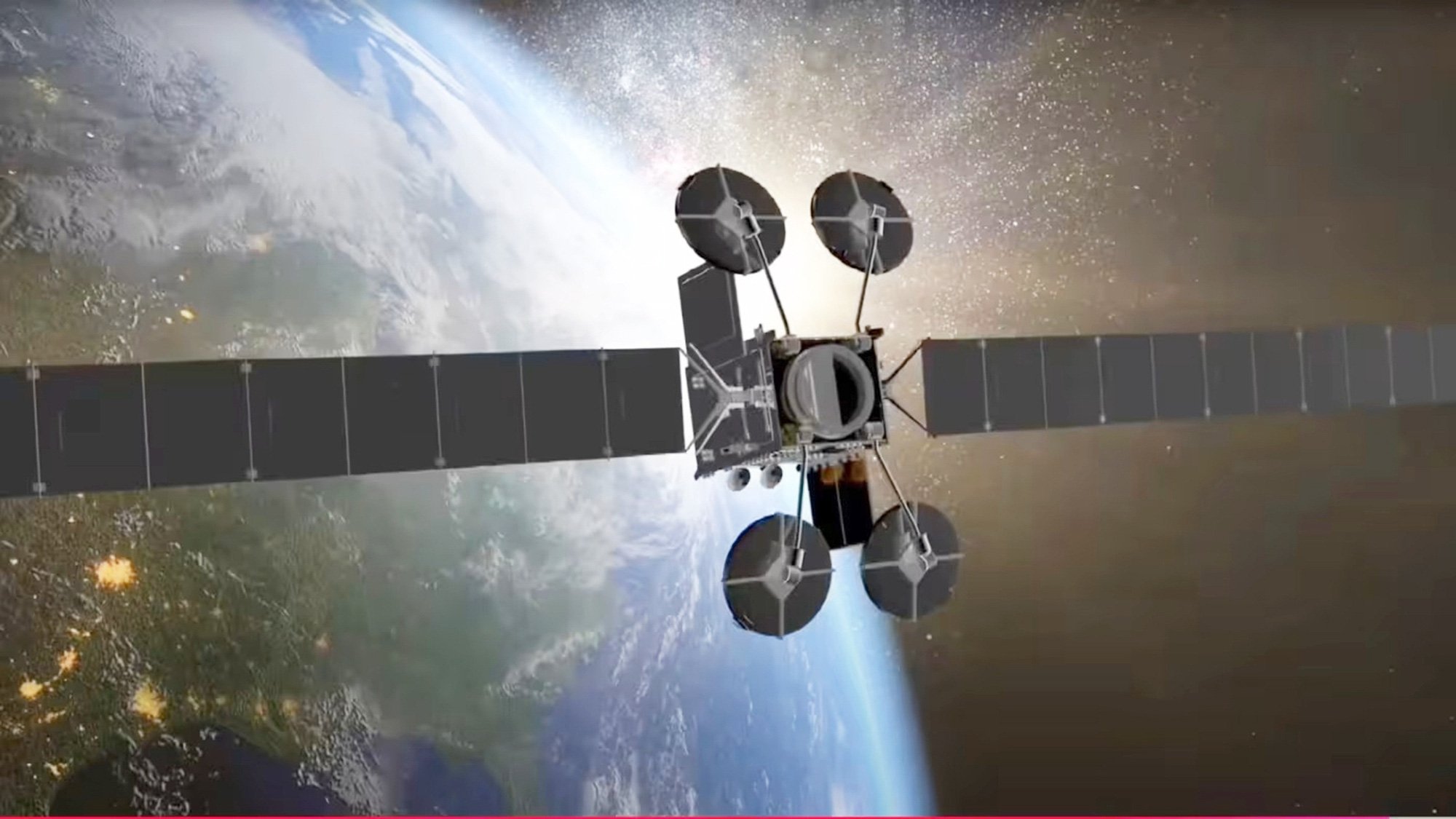
The IRIS² constellation will consist of hundreds of satellites in low Earth orbit and medium Earth orbit - Photo: Financial Times/OneWeb
Earlier this week, the EU signed formal contracts to launch the "Satellite Constellation" infrastructure project dedicated to high-speed internet access.
With plans to build a multi-orbit network of nearly 300 satellites, the IRIS² project aims to compete with US satellite internet providers such as Elon Musk's Starlink and Amazon's Kuiper project.
Historical milestone
The IRIS² constellation – an acronym for Infrastructure for Resilience, Interconnectivity and Security by Satellite – will consist of hundreds of satellites in low Earth orbit and others in medium Earth orbit.
Placing interconnected satellites in different orbits like this would allow the constellation to operate safely, quickly, and maintain continuous connectivity without the need for thousands of satellites. An additional layer in low Earth orbit providing further services would also be developed.
With an estimated budget of 10.6 billion euros (11.1 billion USD), IRIS² will enable secure communication for military , defense, and diplomatic purposes. The system can also be used for monitoring, connecting in disaster-stricken areas, and providing commercial broadband access.
"In an increasingly complex geopolitical world, ensuring that government communications are fast, secure, and sustainable is essential," commented Josef Aschbacher, Director General of the European Space Agency (ESA).
ESA is supporting the development of the IRIS² project through a contract signed with SpaceRISE Industrial Group, selected by the European Commission. The European Commission has signed a 12-year concession agreement with SpaceRISE Group. A second contract between ESA and SpaceRISE Group has also been signed.
This satellite internet system, developed through a public-private partnership, will serve both government and private customers. Of the total cost of €10.6 billion, the EU will contribute €6 billion, the ESA will fund €550 million, and the private sector will provide over €4 billion. The ESA plays a key role in IRIS².
Under the 12-year concession agreement, ESA will oversee the development activities carried out by the aforementioned industrial group. "The signing of IRIS² is a historic milestone for the European space industry," said Miguel Angel Panduro, CEO of Hispasat.
To avoid becoming overly dependent on Starlink
The EU project was launched amidst the dominance of Starlink – the high-speed satellite internet network of SpaceX, owned by American billionaire Elon Musk – in the large-scale satellite constellation sector.
Starlink currently operates a constellation of more than 7,000 satellites in low Earth orbit. Meanwhile, rivals such as Amazon's Project Kuiper and China's low Earth orbit internet program are accelerating.
The main motivation behind the EU's launch of this project is the bloc's concern about over-reliance on Starlink and "an erratic Elon Musk." This danger was evident in the Russia-Ukraine conflict, where the Starlink satellite internet system reportedly blocked Ukraine's access during a crucial counterattack.
"We cannot allow ourselves to become too dependent," said EU Commissioner for Defence and Space Andrius Kubilius.
"It is extremely important for Europe to have sovereign capacity, and Starlink will never achieve that," said Eva Berneke, CEO of Eutelsat.
However, Politico noted that the EU's move "is unlikely to keep Elon Musk awake at night" because the project has faced numerous delays and cost overruns. The European Commission previously promised that IRIS² would begin operations this year, but earlier this week EU officials said the target was... 2031.
Now that the contracts have been signed, the design phase will begin. The satellites are expected to be launched in 2029 on 13 missions using Europe's Ariane 6 rocket.
China is also competing with Starlink in the satellite internet market.
On December 16, China launched the first satellites in its large-scale GuoWang satellite constellation project from the Wenchang Spaceport. GuoWang first came to light in 2020 when China submitted a proposal to the International Telecommunication Union (ITU) for a satellite constellation project comprising nearly 13,000 satellites.
Considered the Chinese version used to counter SpaceX's Starlink, GuoWang is tasked with providing global broadband internet service while also fulfilling China's national security objectives.
Source: https://tuoitre.vn/khoc-liet-canh-tranh-internet-ve-tinh-20241217233432675.htm





![[Photo] Prime Minister Pham Minh Chinh presides over a meeting on private sector economic development.](/_next/image?url=https%3A%2F%2Fvphoto.vietnam.vn%2Fthumb%2F1200x675%2Fvietnam%2Fresource%2FIMAGE%2F2025%2F12%2F20%2F1766237501876_thiet-ke-chua-co-ten-40-png.webp&w=3840&q=75)





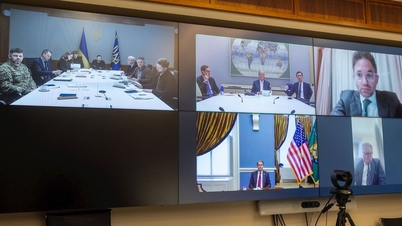
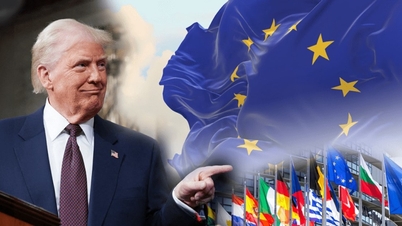
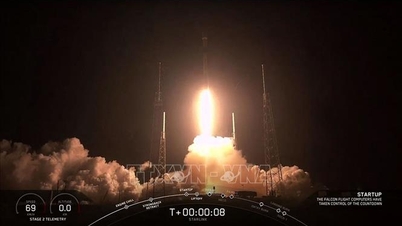

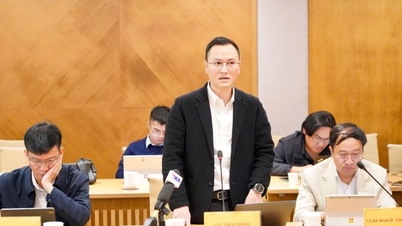




















































































Comment (0)